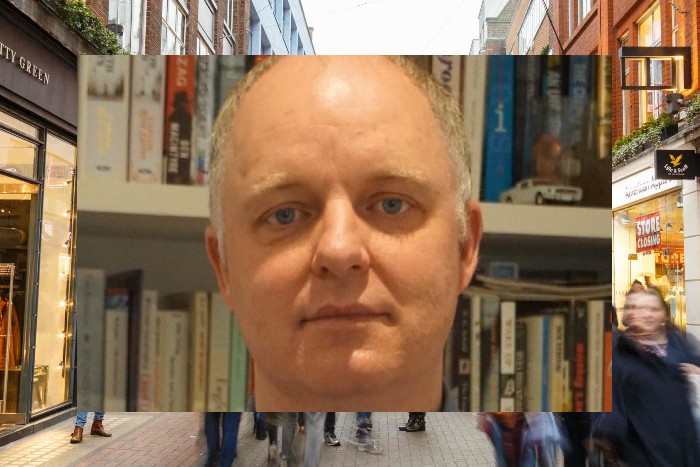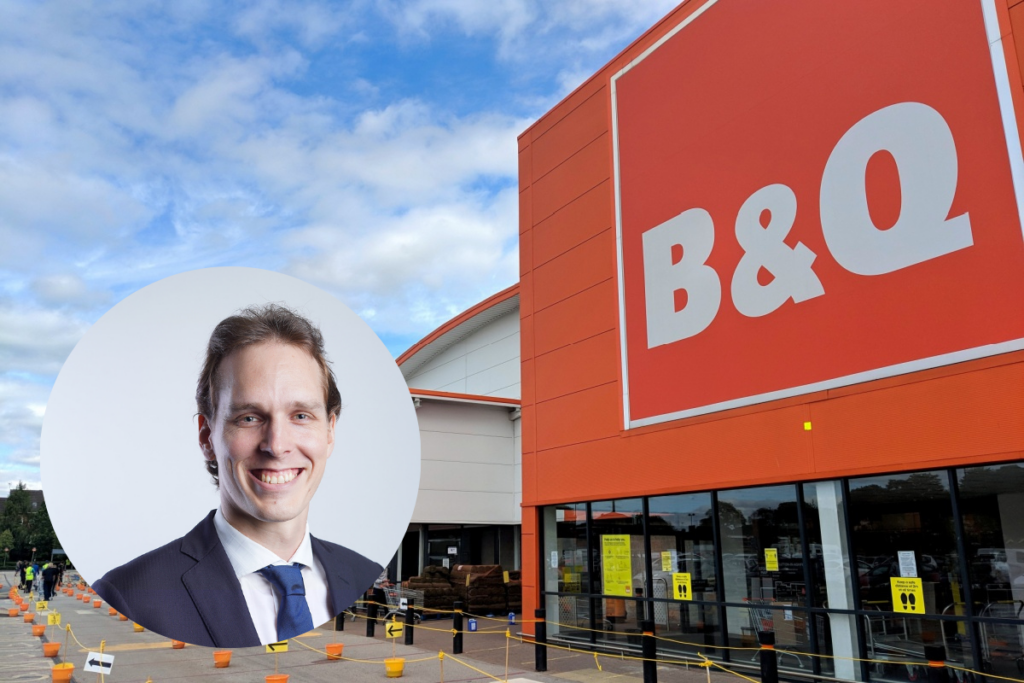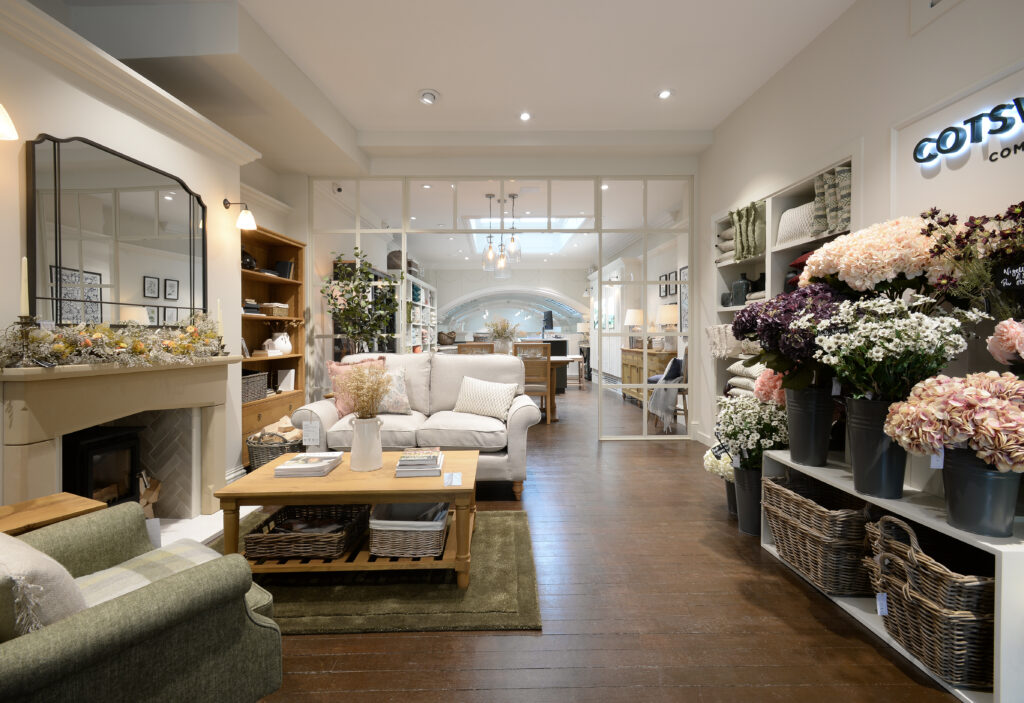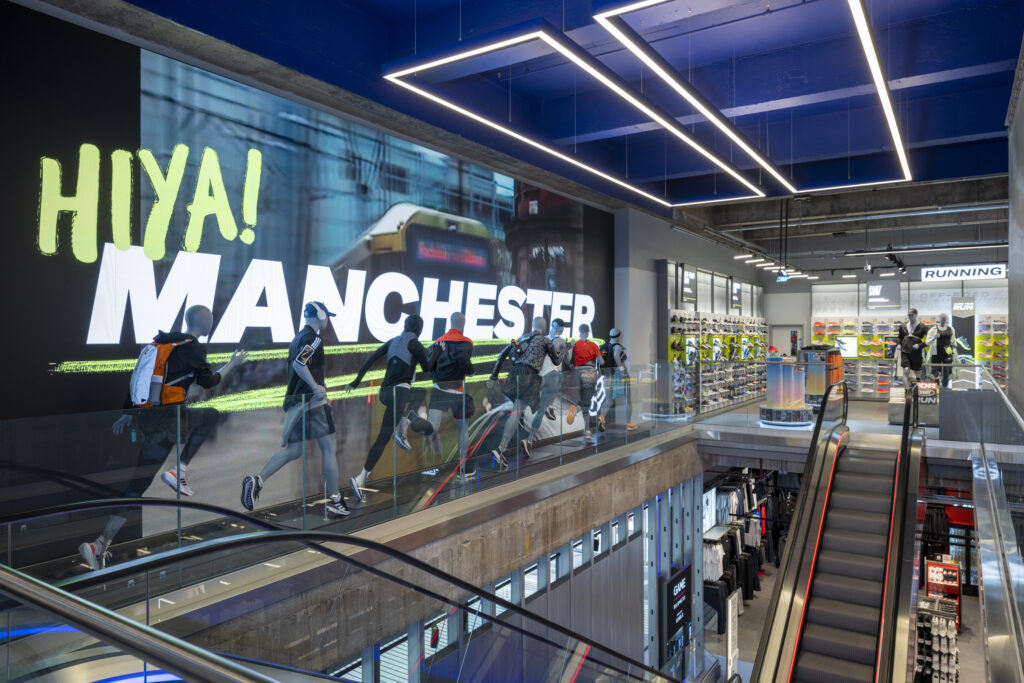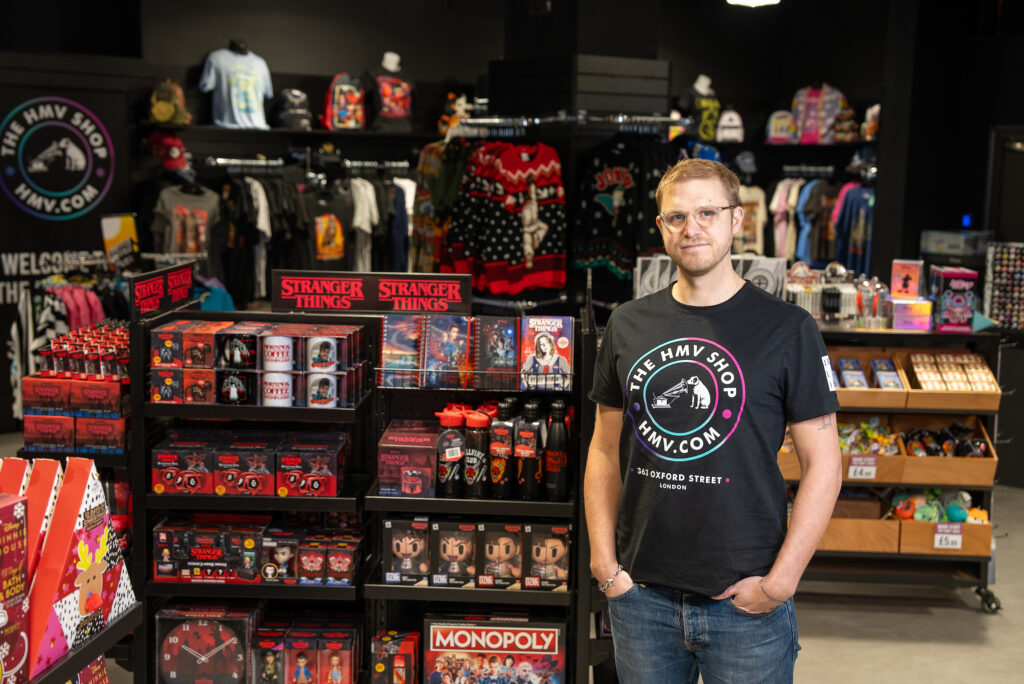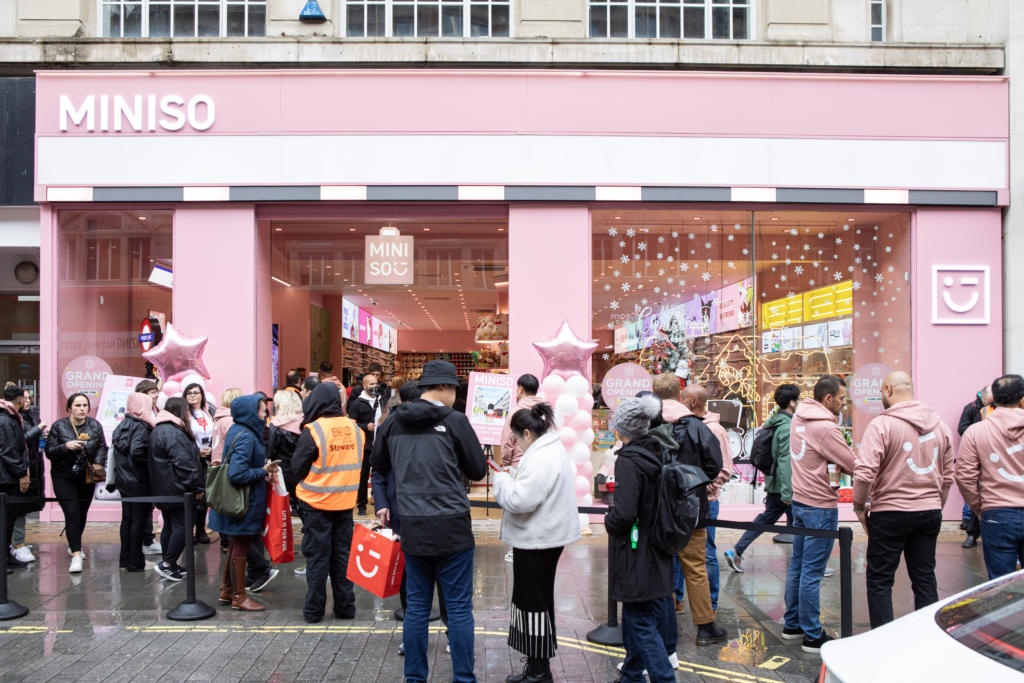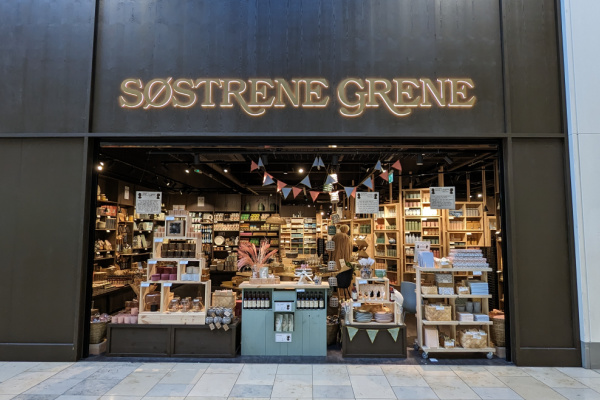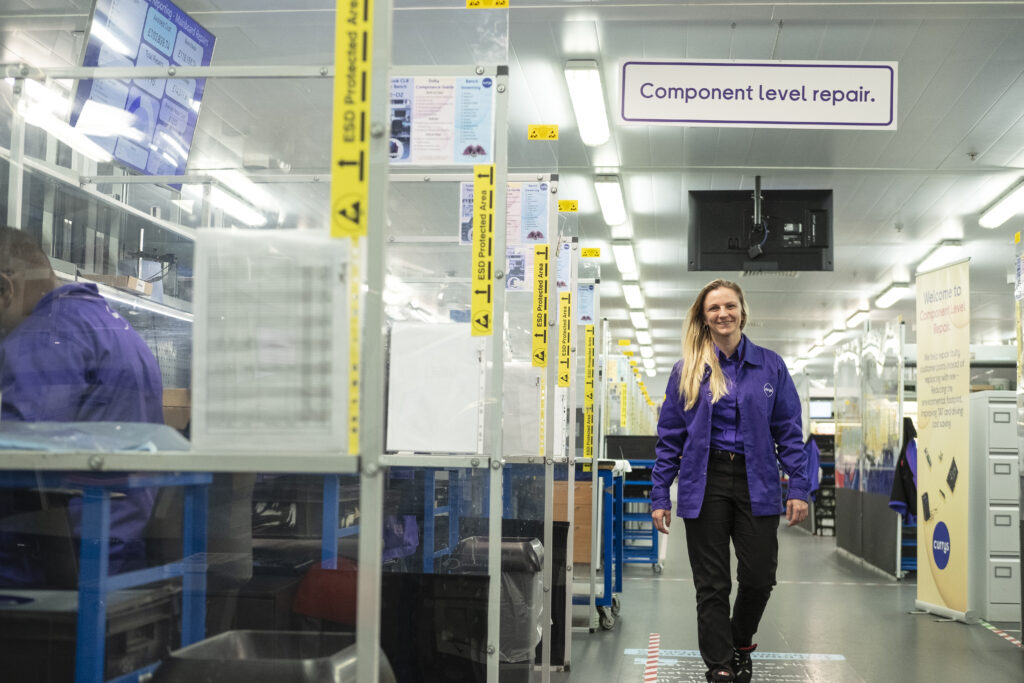Tom Ironside leads the business and regulation team at the British Retail Consortium (BRC), covering a broad range of business cost and reputational issues including property, planning, regeneration, taxation, crime, employment, and diversity.
At a time when the Covid-19 pandemic has led to many changes in the retail sector, Ironside said there was still some optimism that retail will continue to deliver – regardless of what has taken place in the last 11 months.
As the retail industry continues to “deliver consumer demand against difficult circumstances”, Ironside warned that non-essential retailers have experienced a “stop-start” process since the beginning of the pandemic, which could affect the industry as a whole.

With England going into a third lockdown on January 5 – shortly after lockdowns had been implemented in Wales, Northern Ireland and Scotland – Ironside said retailers that were allowed to remain open have increasingly shifted their focus to online. He said this continues to outperform other categories.
Just this week, England and Scotland unveiled their respective lockdown exit roadmaps, which entails non-essential retailers being able to reopen from April 12 and April 26, respectively.
However, Ironside said there were two matters that remain uncertain in 2021.
“One is what happens in terms of business rates support, and two is what happens in relation to those companies who have significant amounts of debts resulting from their landlord liability,” he told Retail Gazette.
Last month, real estate adviser Altus Group warned that landlords may be forced to pay nearly £1 billion in business rates for empty shops during the pandemic. The collapse of both Debenhams and Arcadia Group could see 14 million sq ft of retail space become vacant with landlords having to stump up a further £141 million annually in empty rates.

Meanwhile, the latest vacancy monitor from the BRC and Local Data Company revealed that 13.7 per cent of all shops were empty during the quarter to the end of December. Vacancy levels jumped from 13.2 per cent in the previous three-month period, as the monitor reported the 10th consecutive quarter of rising vacancies.
“The government has said that it’s continuing to look at what relief should be in place for 2021,” Ironside said.
“That is from April 2021, so we’re pressing them hard to provide support going forward, particularly focused on those who have been required to close or who have seen very significant Covid-19 impacts.
“If we can get that support in place, that would make a big difference to the commercial viability of some properties.
“Then there’s the second question – which is definitely a key consideration for the industry – which is what happens in relation to those companies who have significant amounts of debts resulting from their landlord liability.
“You’ve had a series of moratoria. What we’re saying to the government is you need to find a mechanism to bring that landlord-tenant engagement to a successful conclusion.
“No company willingly goes down the CVA route, or uses it as a tactical device”
“No company willingly goes down the CVA route, or uses it as a tactical device. They are doing this when they have no other option.”
With retailers expecting to cull 200,000 job losses this year as Covid-19 restrictions continue to affect the industry, Ironside said job losses were inevitable.
“There will be fewer jobs in the retail industry, but we want them to be better jobs – more rewarding, more productive, and higher skilled,” he predicted.
“The BRC has been focused on retail employment for a really long time. Our Better Jobs campaign looks at the impact of transformation on the industry, and what the impact of that transformation was for the workforce.
“What you have with the pandemic is an acceleration of that process of transformation. When you look at figures from Centre for Retail Research, in terms of the job loss picture, there are at the same time, all sorts of new roles being created.
“We believe there’s a positive story that the retail industry continues to attract people. We’ve got a very high proportion of young people working within the industry, and there are opportunities which result for them.
“The difficult thing at the moment is the absence of visibility around what happens next in terms of the pandemic.”
Although retailers have sought to accelerate their employment process, improving the representation at board level for Black, Asian and minority ethnic (BAME) people has arguably proved a slow process.
In June, 2020, John Lewis Partnership was criticised for its lack of diversity in its top ranks, with just six of its 158 senior UK managers being non-white. Only three directors on the permanent senior UK team are from an ethnic minority – chairman Sharon White, strategy director Nina Bhatia and customer service director Bérangère Michel.
Other retailers, such as Co-op, Prada, and Marks & Spencer have since launched action against the lack of diversity.
Ironside said that as part of the BRC’s overarching Better Jobs initiative, it was engaging with HR directors from across retail.
“We’ve had a focus over the last few months, within our discussions with retailers on the different challenges and the different solutions,” he told Retail Gazette.
“There’s a bit of a watch-this-space here to both assess the current state of play within retail, but also to develop some commitments or pledges for retailers to sign up to in the months to come – which we hope will set a direction of travel for the industry to improve its position on diversity and inclusion.”
However, Ironside said there remains the challenge of tokenism and how retailers would need to avoid that.
“There must be no tokenism in any of this. This needs to be about a measurable, sustainable, empirical, and objective process of improvement,” he said.
“What you have to do at the start of this is to measure where we are now to set a baseline in terms of recruitment, in terms of progression opportunities, in terms of all the aspects of the issue, which creates the challenge.
“Then you have to help the companies with practical interventions, take the steps that they need to, to address it on a long-term basis.”

Meanwhile, Ironside warned that the decision for the government to abolish the VAT retail export scheme was a “body blow” to a whole range of retailers in key shopping locations.
In September, the Treasury made a surprise announcement that unveiled plans to end two schemes providing VAT-free shopping for tourists, which were to be withdrawn at the end of the Brexit transition period on New Year’s Day this year.
The Treasury backed up its decision by stating that it wanted personal duty and tax systems in line with international norms. As a result of the announcement, British luxury retailers such as Burberry, Fortnum & Mason and Harrods could risk losing out to international tourists who could decide to head to shops across mainland Europe instead.
Ironside said the tax relief contributed hugely to employment and tourist spend on many major high streets and certain locations like airports.
“It doesn’t have to be precisely that scheme in the future but it needs to be a scheme which makes it easy for tourists to reclaim any VAT on goods,” he explained.
He added that two thirds of respondents from key markets said they would be less likely to visit the UK in the future in the absence of that tax relief – particularly Chinese tourists.
“What we really want is for the government to revisit its decision. We’re emerging from what was a very difficult process of Brexit engagement, which capitally came to a trade agreement,” Ironside said.
“But what we would like the government to do is to see how we can ensure that the UK maintains its rightful reputation as a leading world destination for tourism spend on retail, and having a scheme of this is a prerequisite way to do that.”
“Prior to entering the pandemic, we had a huge issue with violence and abuse”
Furthermore, Ironside argued that Covid-19 has significantly exacerbated one of the most pressing issues in the industry: crime. Before the pandemic, Ironside said the BRC was already dealing with this as a “huge issue” for people working in stores, but since the first lockdown things have accelerated.
In fact it’s become so serious that than 65 bosses from retailers and industry bodies wrote to Prime Minister Boris Johnson earlier this month to urge him to take action in tackling violence and abuse towards shopworkers across England and Wales. Such legislation could toughen sentences for those who are violent or abusive towards shopworkers, deter future perpetrators and ensure shopworkers feel safer at work.
The letter came few weeks after legislation detailing such protections was passed in Scotland, and was in response to a survey conducted by the BRC – which found that of the retailers classed as essential and allowed to be open during lockdown, 100 per cent saw an increase in verbal abuse. The survey also found two thirds of respondents reported an increase in physical violence against staff during the current lockdown.
“If you look at our most recent crime survey, which is about nine months behind, you would find that there were over 400 incidents per day, which is a big area of focus,” Ironside told Retail Gazette.
He went on to say that additional requirements being placed on customers in terms of face coverings and social distancing has further exasperated retail crime.
“We found that customers were threatening to cough and spit on shop staff,” Ironside said.
“There were additional flashpoints and additional stress points, which have resulted from the pandemic.”

Separately, Co-op recorded a 140 per cent increase in crime in the last year, with more than 200,000 cases – ranging from those that are violent, non-violent or involve shoplifting. Co-op Food chief executive Jo Whitfield said the new demands for staff to enforce mask-wearing and social distancing rules created a major flashpoint for “abuse, threats and violence”.
The Co-op recorded thousands of incidents every week, and Whitfield said supermarkets should not be expected to make customers cover up as this should be responsibility of the police force.
Ironside agreed. He said the enforcement power still sits with the police force when it came to crime against shopworkers.
“We’ve seen an increase in the number of retailers in recent weeks who have come forward to say ‘look, we’re going to strongly encourage people to wear masks at the entrance of stores’ and this has backfired for some,” he said.
“While the majority of people are wanting to do the right thing, the police needs to step up and support retail when they’re trying to encourage this behaviour.
“If you are expecting staff to take even more robust interventions, then that can only lead to greater challenges from a violence and abuse perspective.”
Finally, Ironside said the BRC was now focusing on how the roll-out of vaccinations moves forward.
“If we witness a successful progress on that front, we will be hopeful to reach a place where we can exit from lockdown,” he explained.
“There’s a real absence of clarity at this current time about where it goes next.
“Although the government has been providing support to the retail sector in furlough schemes, we want the right responsiveness and support from them.
“We just need to make sure that support remains in place if difficulties continue.”
Click here to sign up to Retail Gazette’s free daily email newsletter

